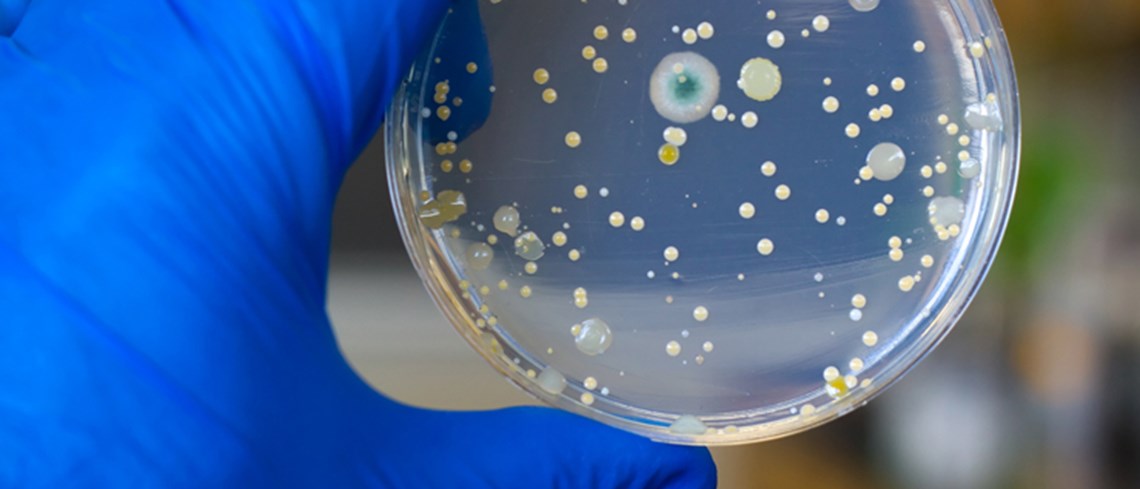Germs 101
Most germs are harmless. Some of them do you good, like the ones in your gut that help you digest food.
But it’s worth knowing about germs that aren’t good and how they can be spread in your home – especially when a few simple hygiene tips can stop them from spreading various diseases and infections.
What are germs?
Germs are microscopic organisms that cause diseases and infections if they enter our bodies.
Different types of germs
Here are the four different kinds of germs:
- Bacteria
- Viruses
- Fungi
- Parasites
How do germs spread?
Germs can spread through either direct contact (e.g., hugging, shaking, or holding hands) or indirect contact (e.g., touching surfaces or objects already contaminated with germs).
While bacteria and fungi can thrive anywhere warm and moist, viruses must be inside a living host to reproduce. Through this process, they can cause different types of diseases, such as diarrhea and food poisoning.
Common sources of germs in the home are:
- Contaminated food and water.
- Regularly touched surfaces like doorknobs, taps, TV remotes, and telephones.
- Cleaning and waste areas like bins, sinks, and toilets.
- Household waste includes used or gone-off food, tissues, and soiled nappies.
- Cleaning items like cleaning cloths, sponges, and dirty toothbrushes.
- Pets and other animals like rodents and flies.
What do germs do?
When germs enter your body, they strive to stay alive for a long time. As a result, they eat up your body's nutrients and energy.
They also produce toxins, which act like poisons and are responsible for diseases such as fever, flu, coughing, vomiting, rashes, etc.
How do germs get into your body?
There are several ways through which germs can get into your body, including:
- Through the consumption of contaminated food.
- Inhaled through your nose and mouth.
- Enter into your body via untreated cuts or wounds.
- Enter your bloodstream through injections, surgery, or animal or insect bites.
- Passed onto others through bodily contact.
How can you protect yourself and others from germs?
Below are some basic hygiene tips to keep you and your loved ones protected from germs:
Wash your hands
Effective hand hygiene is the most productive way to prevent the spread of germs and infections. Regularly wash your hands with warm water, antibacterial soap, or liquid hand wash.
Even though most of us are familiar with the basic steps of how to wash our hands, many people are still alienated from proper hand washing techniques to keep themselves healthy.
Cleaning and disinfecting
Although they have the same purpose - eliminating germs to reduce the risk of infection, you should always distinguish cleaning and disinfecting from each other.
Cleaning removes dust, dirt, and minimal germs, whereas disinfecting removes a maximum number of harmful germs. Read and learn more about them and their differences.
To ensure maximum protection against germs, you must regularly disinfect common surfaces and objects in your environment with a disinfectant surface spray, antiseptic liquid, or antibacterial multi-use wipes.
Vaccines
Vaccines are one of the most common, safest, and effective ways to protect yourself from various diseases caused by germs.
After entering your body, they’ll trigger an immune response to fight against microorganisms weakening your immune system.
Ensure you and your children are updated on vaccinations to prevent getting sick from different infections and diseases.
Medicines
Medicines are used to cure, halt, or prevent diseases. Their other purposes include easing symptoms or helping diagnose diseases.
Most medicines cure diseases by eliminating or stopping the spread of the germs, such as bacteria and viruses.
However, you should always consult your doctor when feeling under the weather and take medicines under their supervision.
Did you know…
In the right conditions, bacteria like Escherichia coli (e-coli) can divide every 20 minutes, so in only 8 hours, a single bacterium can grow to nearly 17M bacteria.
Dettol offers a range of products that can kill 99.99% of germs to protect you and your family from illness.
FAQs
How do germs harm us?
After invading our bodies, germs can harm us by eating up our body’s nutrients and energy. They can also produce toxins that act like poisons and can cause various infections such as fever, cold, and flu.
What detergents kill bacteria?
Common liquid detergents cannot eliminate germs, bacteria, and viruses under 60°Celsius. However, adding the Dettol antiseptic liquid with the detergent can provide 99.9% of germs protection for your family.
How to stop the spread of germs?
Follow the steps below to stop the spread of germs:
- Wash your hands with antibacterial soap or liquid hand wash frequently.
- Wash your hands after sneezing, coughing, or blowing your nose.
- Don’t share your belongings with anyone to reduce the risk of spreading germs.
- Don't share food, utensils, or beverage containers with others.
